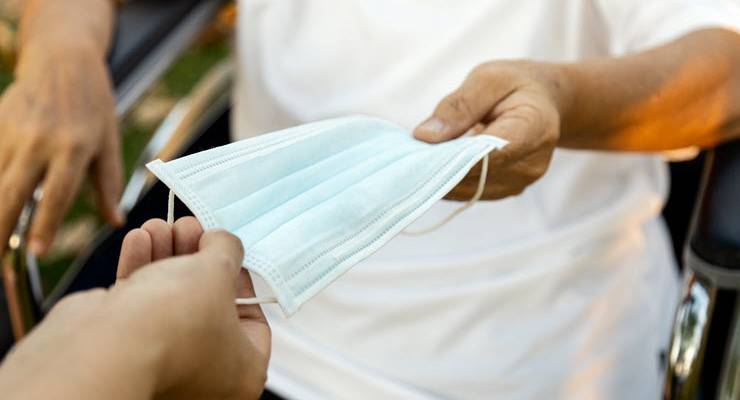
Disability support workers have been “dangerously overlooked” in the pandemic response and should be paid an extra hourly rate for looking after clients infected with, or suspected of having, COVID-19, unions say.
The Fair Work Commission this morning heard an application from the Australian Service Union, Health Services Union and United Workers Union asking for an extra $4.94 an hour for carers with clients who had contracted COVID-19 or were waiting for test results.
The unions cited a commissioned report conducted by the University of NSW (UNSW) which surveyed more than 2300 disability workers. The report found workers were anxious about their safety, facing additional workload caring for vulnerable clients, and losing shifts during the pandemic.
Push for extra pay
Health Services Union national secretary Lloyd Williams told Crikey the request was fair and modest — for a 38-hour work week, it would translate to $187.82. “It’s not a high cost,” Williams said.
“Given just six NDIS participants have been infected with COVID-19 [across Australia], we estimate the cost would only be around $20,000 to $25,000. It’s a small price to pay to say we value the contribution of these essential workers.”
The union is also pushing for the same retention bonus paid to aged care workers to be extended to disability workers.
“These workers are low paid with insecure employment, we have to recognise they are essential workers like other healthcare workers,” Williams said. He estimated that more than 40% of the disability sector was employed casually.
Unlike aged or health care workers, disability support workers have not been prioritised for COVID-19 testing or personal protective equipment. People with a disability often have underlying health conditions that make them more susceptible to serious or fatal cases of COVID-19.
Support workers ‘dangerously overlooked’
Danny McCormick, a team leader and disability worker at Able Australia in Tasmania, told Crikey that insecure work presented huge risks during the pandemic.
“There’s a strange mix of underemployment and short staffing,” he said. “Staff work across different organisations because of a lack of employment permanency. They go from one place to another to piece together some sort of existence.”
The UNSW report found key issues during the pandemic are a lack of personal protective equipment and inadequate safety protocols with day programs still operating and group homes allowing visitors. Workers are anxious about their safety, workplace security and ability to self-isolate without pay.
McCormick said insecure work meant there was a “financial disincentive” for workers to take time off if they were sick.
“They know they’re not going to get paid,” he said. Workloads have also increased, with workers having to spend extra time disinfecting groceries and homes to protect clients, he said.
System a shambles prior to COVID-19
University of Sydney School of Medicine emeritus professor Trevor Parmenter said the report was not surprising. “The NDIS has changed the fabric of the whole industry in terms of support workers,” he told Crikey.
The NDIS’s fee-for-service model has increased the rate of casualisation in the disability workforce. “Instead of having an eight-hour shift, disability support workers are only giving direct support for five hours, so the organisation employs them casually for the five hours,” he said.
In response to the pandemic, Parmenter said he’d heard of workers not accepting shifts with high-need clients — especially those with behavioural problems who need to be physically supported — for fear of contracting the virus.
Staff training and briefing on procedures and practices, even before the pandemic, was “absent”, Parmenter said.
“Organisations don’t have time to brief staff on procedures and practices, even before the pandemic. Now, it’s another level of anxiety and complexity.”








Surprised there aren’t comments on this. It is one of the worst aspects of the government response. It’s just appalling 🙁